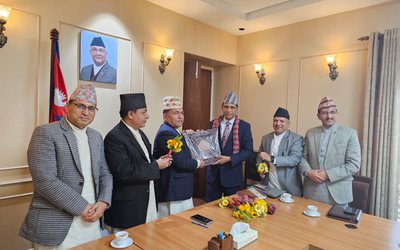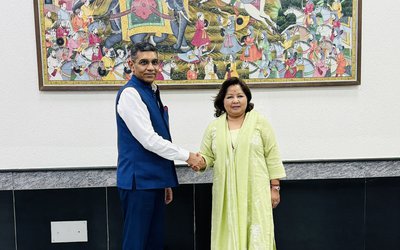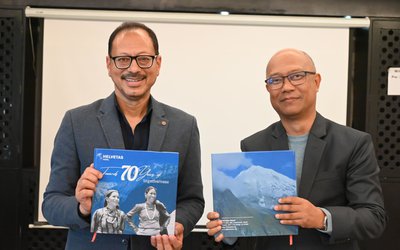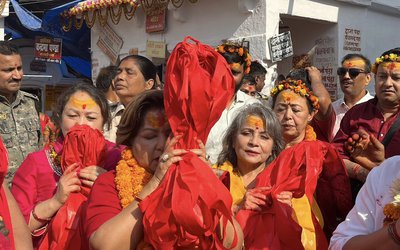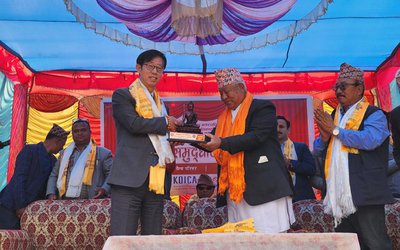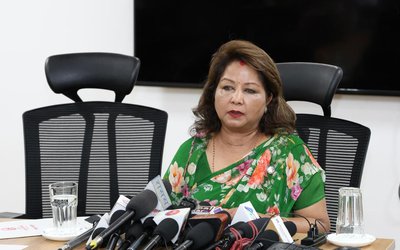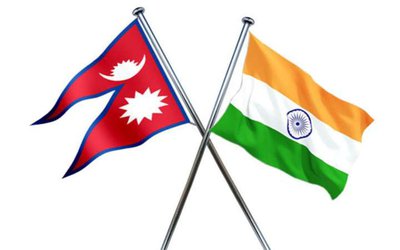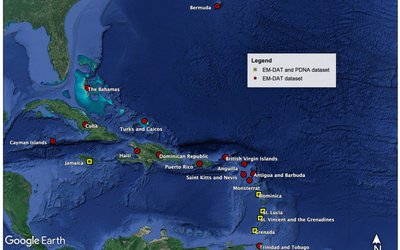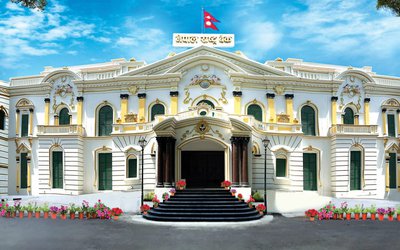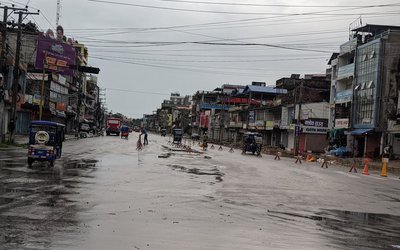
KOICA through its Korea Overseas Volunteer Program and Wildlife Conservation Nepal collaborated to host an event marking the conclusion of Phase III of the KOICA’s Green School Project.

Notable attendees included Mooheon Kong, the Country Director of KOICA Nepal Office, Sanjeevani Yonjan, Director of WCN, Prof. Dr. Surya Ratna Guvaju, Chairperson of WCN, Yubaraj Adhikari, Officer at the Curriculum Development Centre, Navaraj Rijal, Education Officer from Lalitpur Metropolitan City, Sitra Ram Koirala, Education Officer (Department Head) at Kathmandu Metropolitan City, Baburam Gautam, Education Officer from Tokha Municipality, Mandodari Rijal, Education Officer from Kirtipur Municipality, as well as representatives from beneficiary schools and KOICA.
At the event, the KOICA Country Director and the Chairperson of WCN officially launched the Eco Club Guideline. The introduction of this guideline is expected to establish a well-defined framework for engaging students in immediate purposeful environmental activities and school-based projects.
During the program, Eco Club Representatives from each school shared their insights gained from the Green School Project and expressed their commitment to continue such activities in the future. The highlight of the event was the exhibition titled "My Dream My Green School," where Eco Club students showcased 3D models of their envisioned green schools.
Furthermore, representatives from the beneficiaries of the third phase of Green School Project; Nepal APF School, Kirtipur, Saraswoti Secondary School, Tokha, Padmodaya Secondary School, Ramsahpath, Kathmandu, Pragati Siksha Sadan, Kupondole and Shramik Shanti Secondary School,ChyasalLalitpurexpressed their gratitude for the support of KOICA in transforming their schools into exemplary model green schools.
This support included leadership training for teachers and Eco-Club members, capacity-building workshops, inter-school competitions on environmental themes, clean-up campaigns, waste management training, waste audits, and recycling activities, all of which contributed to a more eco-friendly school environment and increased awareness of the importance of environmental preservation.

Yubaraj Adhikari, Officer at the Curriculum Development Centre, shared that Green School Project activities have been effectively integrated into the school curriculum. There are also plans to further integrate Green School Activities into subjects like Science and Environmental Education from the Primary to Secondary Levels.
Roshi Mool, General Manager of KOICA, provided a brief overview of KOICA and its initiatives in Nepal. She explained how Green ODA (Official Development Assistance) has been incorporated into all their projects and volunteer programs in Nepal.
Additionally, Ms. Mool, extended appreciation to Wildlife Conservation Nepal and its entire team for their invaluable technical assistance and the successful execution of the third phase of the Green School Project.
Since 2021, the KOICA Nepal Office has been actively promoting Green ODA in all its activities and projects in Nepal. The Green School Project is one of KOICA's initiatives in the environmental sector, which has received a total allocation of 60850 USD throughout the third phase, and it has been positively impacting 15 community schools from 2021 to 2023. The objective of the Green School Project is to promote KOICA's environment-friendly ODA efforts at the grassroots level.
Moreover, KOICA is currently executing environmental initiatives in the Terai Flood Plain of Nepal under the project titled "Building Climate Resilience and Reintegrating Economically Displaced Workers through Climate Smart Agriculture." This project has a total budget of $5.33 million and is anticipated to conclude by 2025.
In a similar vein, an ongoing project in Pokhara Metropolitan City, Nepal, called "Green Job Creation through Recycling and Upcycling Project," aims to enhance the waste management capabilities of the city's government, promoting eco-friendly policies and frameworks. The project has a total budget of $9.8 million and is expected to be completed by 2029. The objectives of this project encompass establishing a supportive framework for sustainable recycling and upcycling businesses, thus contributing to a greener economy.
- MADHU KUMAR MARASINI: Person With Determination
- Mar 14, 2025
- Foreign Minister Rana in Delhi, Likely To Meet Indian External Affairs Minister
- Mar 14, 2025
- Holi In Terai-Madhesh Today
- Mar 14, 2025
- Nepal’s Current Account Remains At Surplus In seven months of current FY
- Mar 14, 2025
- Weather Forecast: Generally Cloudy In Hilly Areas Koshi And Gandaki With Rain In Few Places
- Mar 14, 2025
